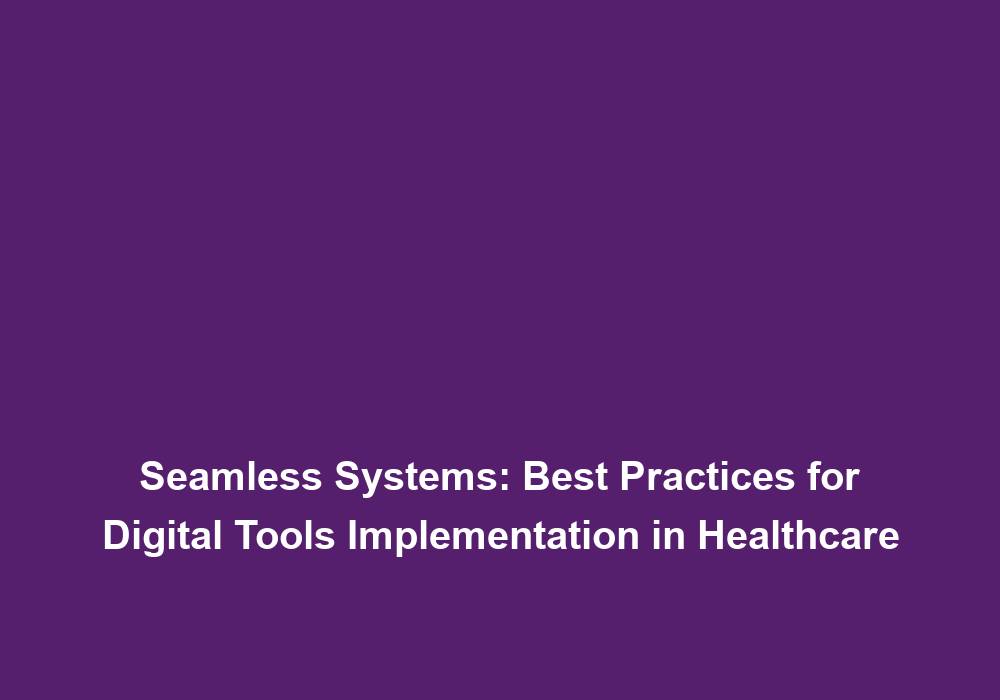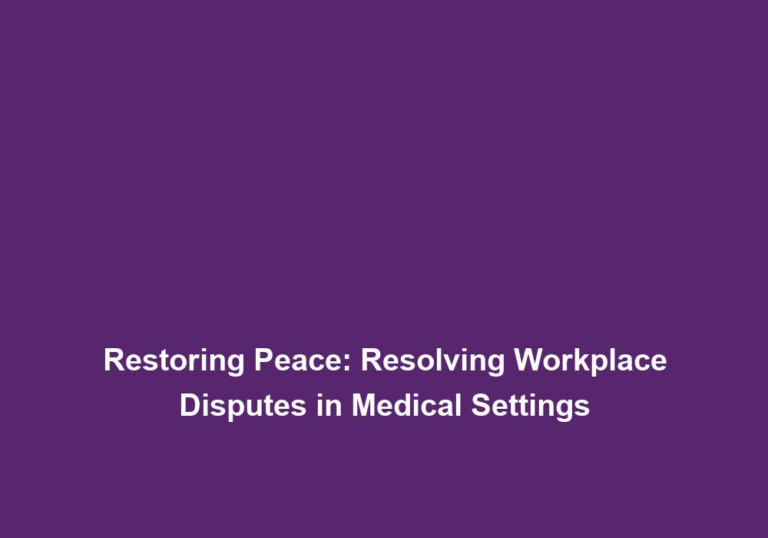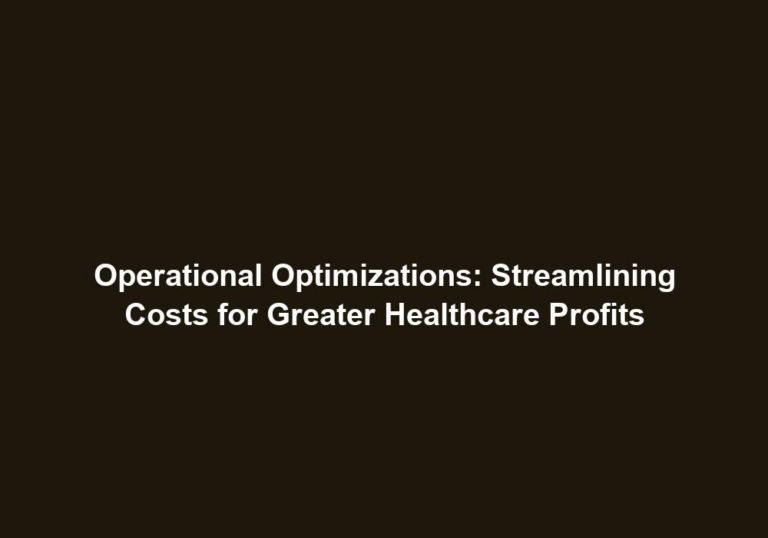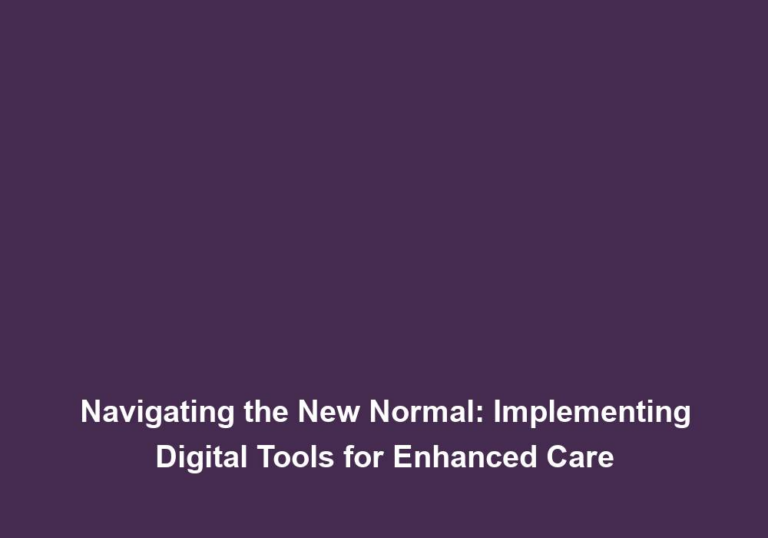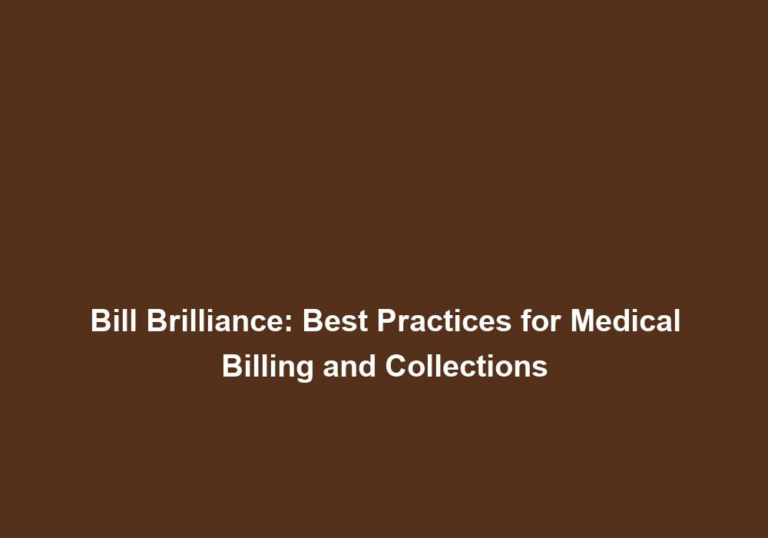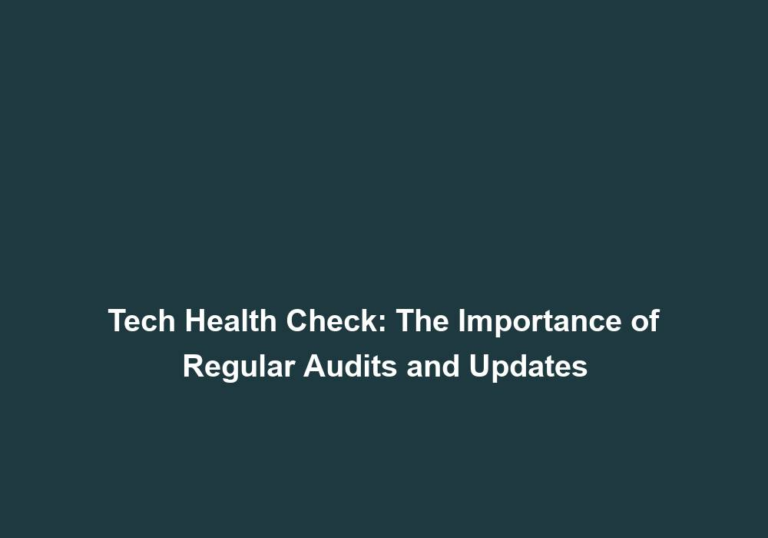MedTech Mastery: Steering Your Practice into the Digital Age
In today’s rapidly evolving healthcare landscape, it has become increasingly important for medical practices to embrace the digital age. The integration of technology in healthcare, commonly known as MedTech, has revolutionized the way practitioners deliver care, engage with patients, and streamline their operations. By harnessing the power of MedTech, medical practices can enhance their efficiency, improve patient outcomes, and stay ahead of the competition. In this article, we will delve into the various aspects of MedTech mastery and how it can benefit your practice.
Understanding the Importance of MedTech in Healthcare
The importance of MedTech in healthcare cannot be overstated. Here are some key reasons why medical practices should embrace it:
-
Enhanced Efficiency: MedTech tools such as electronic health records (EHRs), appointment scheduling software, and telemedicine platforms automate various administrative tasks, saving valuable time for healthcare professionals. These technological advancements streamline workflows, reduce paperwork, and minimize errors, thereby increasing overall efficiency. For example, EHRs allow healthcare providers to quickly access and update patient information, eliminating the need for manual record-keeping and improving care coordination.
-
Improved Patient Engagement: MedTech offers numerous opportunities to actively involve patients in their own healthcare journey. Patient portals and mobile apps empower individuals to access their medical records, schedule appointments, receive personalized health recommendations, and communicate with their providers. This level of engagement promotes patient satisfaction, adherence to treatment plans, and ultimately, better health outcomes. Additionally, mobile health apps provide patients with tools for self-monitoring, such as symptom tracking and medication reminders, enabling them to actively participate in their own care.
-
Data-Driven Decision Making: The digital transformation of healthcare generates vast amounts of data. Through advanced analytics and artificial intelligence, medical practices can gain valuable insights from this data. By analyzing patient information, treatment outcomes, and population health trends, practitioners can make informed decisions, personalize care plans, and identify potential areas for improvement. For example, AI-powered clinical decision support systems can analyze patient data and medical literature to provide evidence-based recommendations to healthcare providers, reducing diagnostic errors and improving patient safety.
-
Enhanced Access to Care: MedTech has made significant strides in bridging geographical barriers and expanding access to care, particularly through telemedicine. By leveraging video consultations, remote monitoring devices, and secure messaging platforms, medical practices can reach patients in remote areas, offer virtual follow-ups, and provide healthcare services beyond traditional boundaries. This not only improves access to care for patients but also allows healthcare providers to extend their reach and impact.
-
Streamlined Practice Operations: MedTech tools automate administrative tasks such as appointment scheduling, billing and coding, inventory management, and documentation. By digitizing and centralizing these processes, practices can reduce human error, improve billing accuracy, optimize resource allocation, and ensure compliance with regulatory requirements. This enables healthcare professionals to focus more on patient care and less on administrative burdens.
Key MedTech Tools Driving Practice Transformation
Several key MedTech tools are driving the transformation of medical practices. Let’s take a closer look at each of them:
-
Electronic Health Records (EHRs): EHRs digitize patient records, allowing healthcare providers to access, update, and share medical information seamlessly. These systems enhance communication between different healthcare professionals, improve care coordination, and enable real-time access to critical patient data. With EHRs, healthcare providers can quickly retrieve patient information, view medical history, and make informed decisions about treatment plans.
-
Telemedicine Platforms: Telemedicine platforms provide a virtual connection between healthcare providers and their patients. Through video consultations, secure messaging, and remote monitoring, telemedicine enhances access to care, reduces travel time and costs for patients, and enables remote diagnosis and treatment. It is particularly useful for patients in remote areas or those with limited mobility, as it allows them to receive quality healthcare without the need for physical visits.
-
Mobile Health Applications: Mobile health apps offer personalized health monitoring, symptom tracking, medication reminders, and patient education. These apps empower patients to actively participate in their own care, promote healthy behaviors, and facilitate remote patient monitoring. Patients can easily track their vitals, record symptoms, and receive educational resources tailored to their specific conditions, all from the convenience of their smartphones.
-
AI-Driven Clinical Decision Support Systems: AI-powered clinical decision support systems analyze patient data, medical literature, and treatment guidelines to provide evidence-based recommendations to healthcare providers. These systems reduce diagnostic errors, enhance treatment planning, and improve patient safety. AI algorithms can analyze vast amounts of patient data to identify patterns, predict disease progression, and optimize treatment plans, leading to more personalized and effective care.
Overcoming Challenges in Adopting MedTech
While the benefits of MedTech are evident, integrating these tools into a medical practice can present challenges. It is essential to address these obstacles effectively to ensure a successful transition:
-
Cost: Implementing MedTech solutions often requires significant financial investment. However, the long-term benefits and potential cost savings in terms of improved efficiency and patient outcomes outweigh the initial expenses. It is crucial for medical practices to carefully evaluate the return on investment and consider the potential long-term benefits before making financial commitments.
-
Training and Change Management: Adoption of MedTech necessitates training staff on new systems and workflows. It is crucial to provide comprehensive training and support to ensure a smooth transition and minimize resistance to change. This includes educating staff on how to effectively use the new tools, addressing any concerns or misconceptions, and providing ongoing support as they adapt to the changes.
-
Data Security and Privacy: With the digitization of healthcare data, ensuring data security and privacy becomes paramount. Medical practices must comply with relevant regulations, implement robust cybersecurity measures, and educate staff on data protection protocols. This includes regularly updating security systems, encrypting sensitive data, and establishing strict access controls to protect patient information from unauthorized access or breaches.
-
Interoperability: Different MedTech tools often use proprietary systems, which can hinder seamless data exchange and interoperability. It is crucial to select solutions that prioritize interoperability and adhere to industry standards. This enables different systems to communicate with each other, ensuring the smooth flow of patient information and preventing data fragmentation. Interoperability also allows healthcare providers to share information with external stakeholders, such as other healthcare organizations or specialists, improving care coordination and continuity.
The Future of MedTech: Emerging Trends
The field of MedTech is constantly evolving, and several emerging trends are poised to shape the future of healthcare. Here are some key trends to watch out for:
-
Artificial Intelligence (AI): AI is poised to revolutionize healthcare by enabling personalized medicine, predictive analytics, and precision diagnostics. AI algorithms can analyze vast amounts of patient data to identify patterns, predict disease progression, and optimize treatment plans. This can lead to more targeted and effective interventions, improving patient outcomes and reducing healthcare costs.
-
Internet of Medical Things (IoMT): IoMT refers to the network of medical devices, wearables, and sensors interconnected through the internet. This technology enables real-time monitoring, remote patient management, and facilitates data-driven decision making. For example, wearable devices can continuously monitor vital signs and send alerts to healthcare providers in case of abnormalities, allowing for early intervention and proactive care.
-
Blockchain Technology: Blockchain offers secure, decentralized record-keeping and data exchange. It enhances data security, ensures traceability, and facilitates interoperability across healthcare systems, improving patient privacy and trust. Blockchain can also streamline processes such as insurance claims, supply chain management, and clinical trials, reducing administrative burdens and increasing transparency.
-
Virtual and Augmented Reality: Virtual and augmented reality technologies have the potential to revolutionize medical education, surgical training, and patient rehabilitation. These immersive experiences can provide realistic simulations, enhance learning outcomes, and improve patient engagement. For example, virtual reality can simulate complex surgical procedures, allowing surgeons to practice and refine their skills in a safe and controlled environment.
In conclusion, embracing MedTech is crucial for medical practices to thrive in the digital age. By leveraging technology, practices can enhance efficiency, improve patient engagement, make data-driven decisions, streamline operations, and overcome geographical barriers. However, adopting MedTech requires addressing challenges such as cost, training, data security, and interoperability. Looking ahead, emerging trends such as AI, IoMT, blockchain, and virtual and augmented reality hold immense potential to further transform healthcare. By mastering MedTech, your practice can stay at the forefront of innovation and continue to deliver high-quality care in the digital era.

